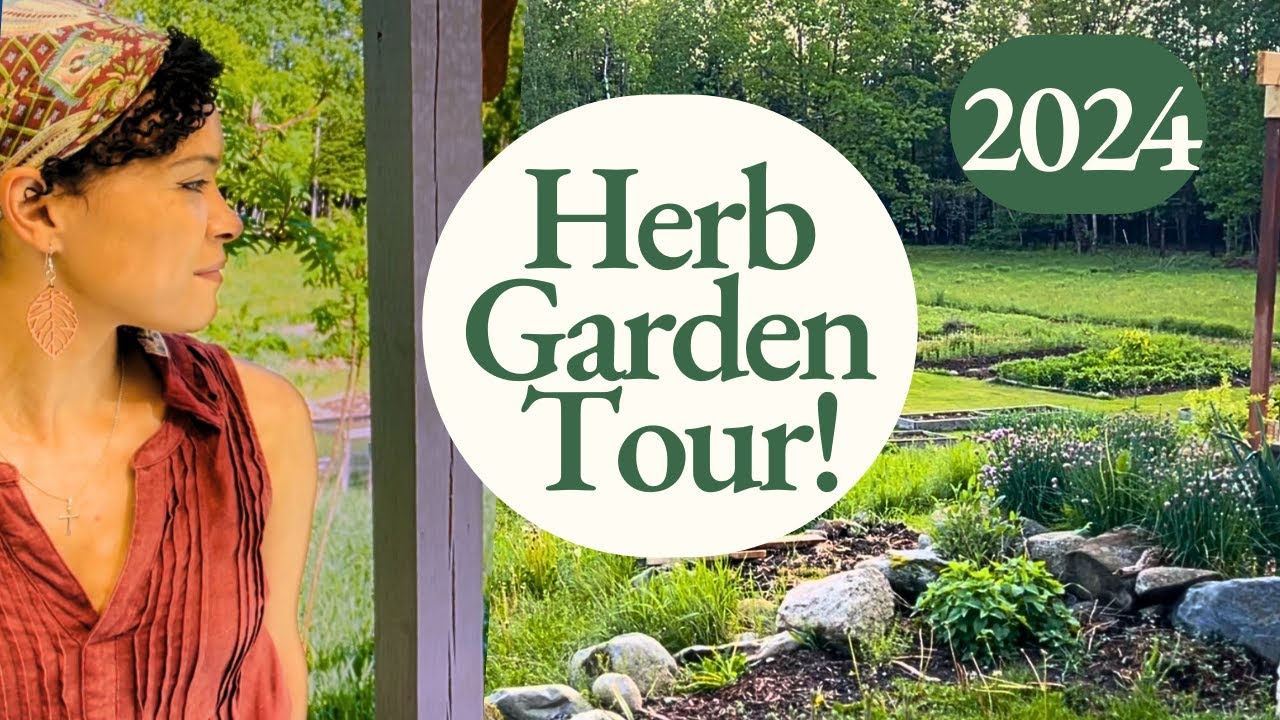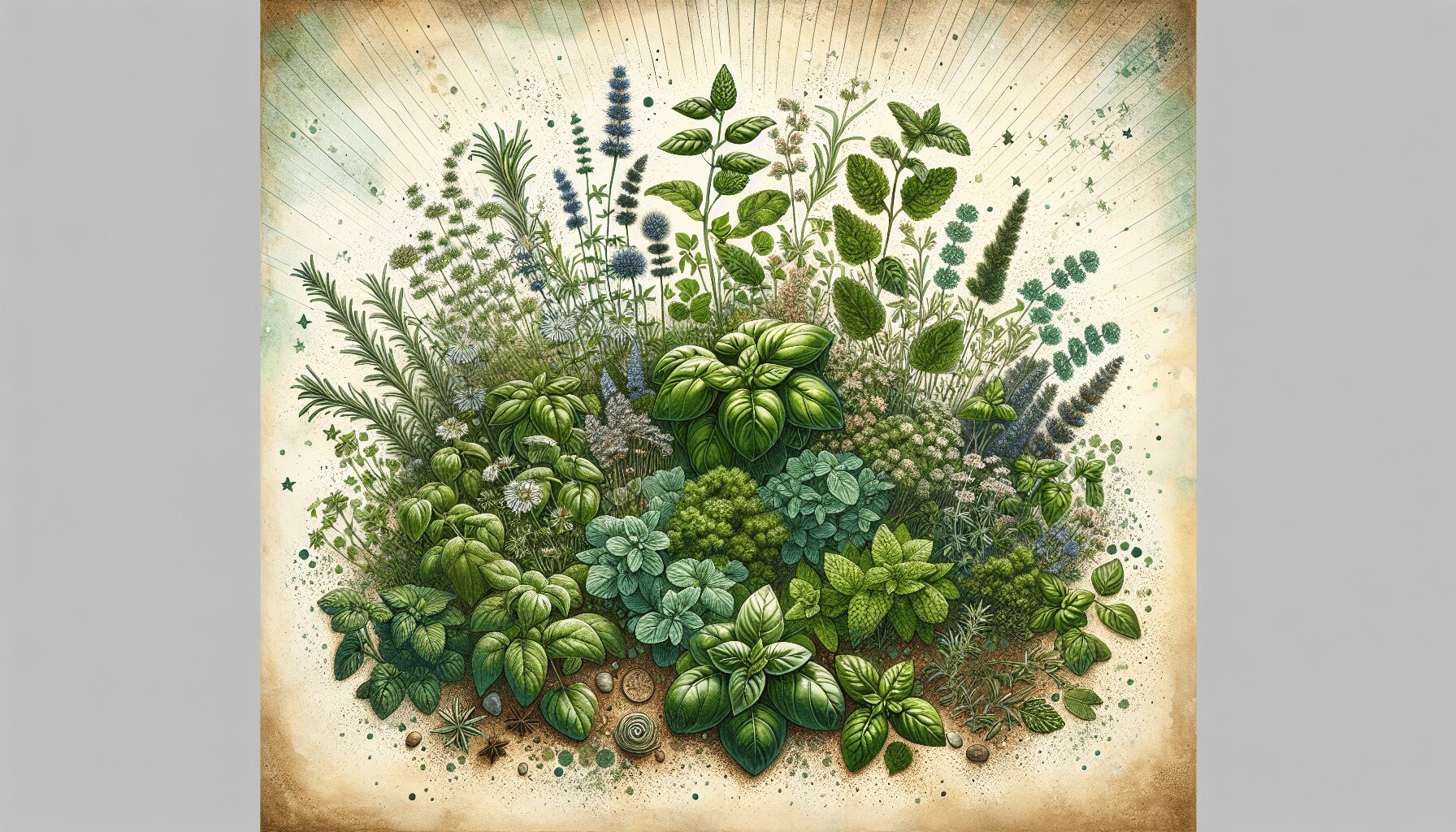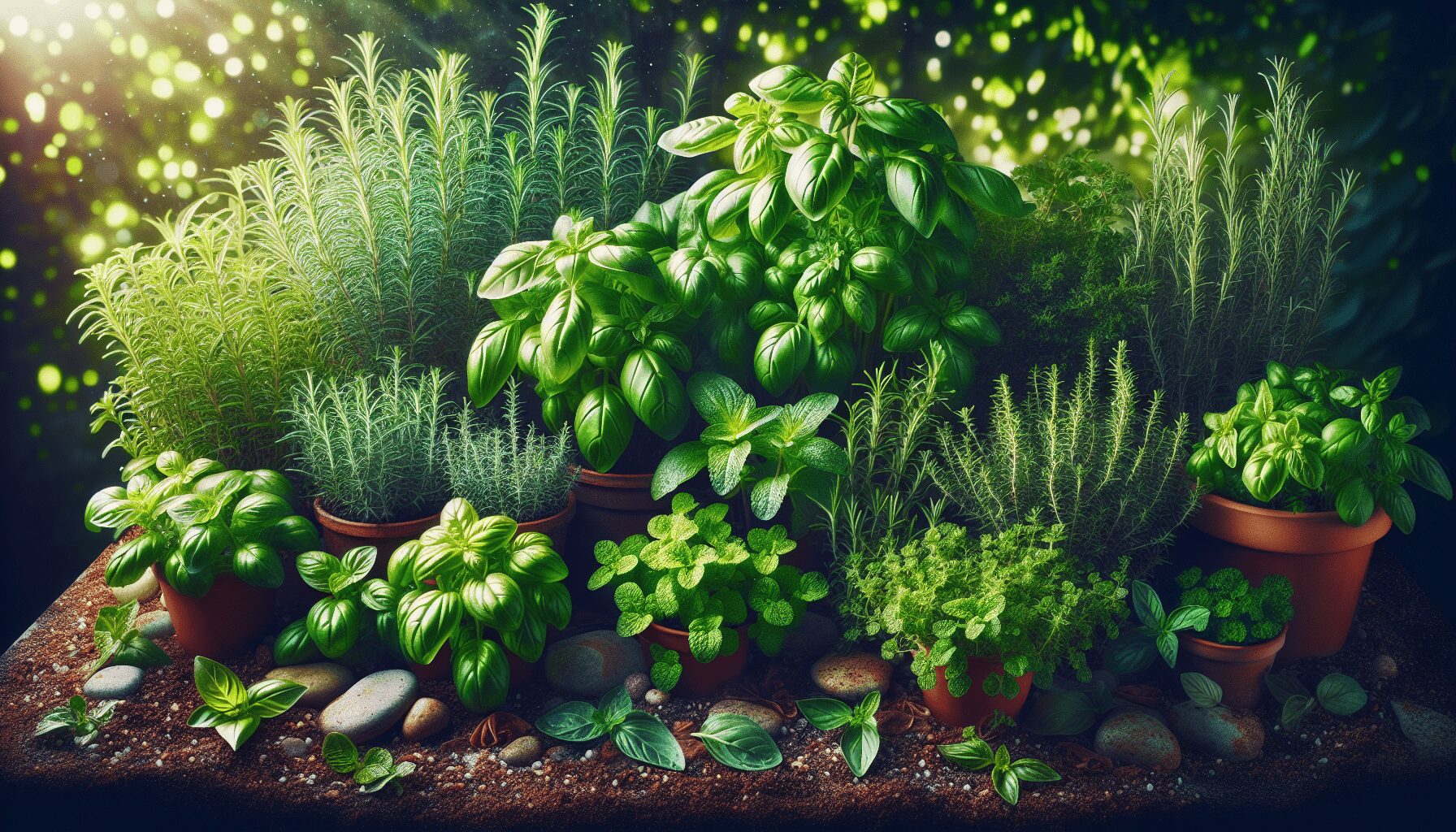In “Herb Garden Tour: 25+ Herbs to Add to Your Garden,” you’ll step into a lush, vibrant garden teeming with both culinary and medicinal herbs. This article will guide you through the benefits of integrating these herbs into your vegetable garden, including attracting pollinators, controlling pests, and improving soil health. You’ll learn about over 25 different herbs that can be added to enhance the vitality of your garden.
Join Da, a passionate gardener and herbalist, as they share valuable strategies for using perennials and annual herbs to build a thriving, biodiverse garden. Through detailed segments, this article will cover topics such as companion planting, pest control, and techniques to prevent invasive herbs from spreading. Prepare to be inspired by the natural beauty and practical wisdom of Da’s herb garden, transformed over five amazing years.

This image is property of i.ytimg.com.
Starting the Vegetable & Herb Garden
Choosing the Right Location
Starting your vegetable and herb garden is an exciting venture! First things first, you’ll want to choose the perfect spot for your garden. Ideally, pick a location that gets at least six to eight hours of direct sunlight each day. Most vegetables and herbs thrive in full sun, so consider an area that isn’t shaded by buildings or large trees. Additionally, ensure the chosen site has good drainage to avoid waterlogged roots, which can lead to root rot. A flat or gently sloped area is best, as steep slopes can cause soil erosion.
Preparing the Soil
Before planting, you’ll need to prepare the soil to create a rich and hospitable environment for your plants. Start by removing any weeds and debris from the area. If you’re working with heavy clay soil, like we did in our Acadian garden, you might need to amend it with organic matter. Incorporate compost, aged manure, or leaf mold to improve soil structure, increase nutrient content, and enhance drainage. Raised beds can also be a great solution, especially for areas with poor native soil.
Selecting Companion Plants
Companion planting is a fantastic strategy for a healthier, more productive garden. Some plants work wonderfully together, helping each other in various ways, like repelling pests or improving growth. Consider pairing herbs with your vegetables; for example, basil with tomatoes to enhance flavor and deter pests, or planting marigolds near your vegetable beds to repel nematodes and aphids. By choosing the right companions, you’ll foster a more balanced and thriving garden ecosystem.
List of Herbs in the Garden
Culinary Herbs
Culinary herbs are a must-have in any garden. They add a burst of fresh flavor to your dishes and are incredibly versatile. Some common culinary herbs to consider include basil, thyme, rosemary, sage, mint, and oregano. Not only do they enhance your meals, but many also have aromatic properties that can deter garden pests.
Medicinal Herbs
Incorporating medicinal herbs into your garden adds an extra layer of value. Herbs like chamomile, St. John’s wort, lavender, and red clover offer medicinal benefits that can support your health in various ways. For example, chamomile can soothe digestive issues and help with sleep, while lavender is known for its calming effects.
Annuals vs. Perennials
Understanding the difference between annual and perennial herbs can help you plan your garden more efficiently. Annual herbs, like basil and cilantro, complete their life cycle in one growing season and need to be replanted each year. Perennial herbs, such as thyme and mint, return year after year, making them a low-maintenance option for a more sustainable garden.
Benefits of Perennial Herbs
Providing Early Pollen
One of the fantastic advantages of perennial herbs is that they often bloom early in the season, providing a crucial source of pollen for pollinators like bees and butterflies when other flowers are not yet available. This helps support local pollinator populations, which are vital for the health of your entire garden.
Covering Soil to Prevent Weeds
Perennial herbs are excellent for covering the soil and preventing weed growth. Their dense foliage creates a natural mulch, blocking light and making it difficult for weed seeds to germinate. This can save you time and energy that would otherwise be spent on weeding.
Longevity and Low Maintenance
Perennial herbs are a long-term investment in your garden. Once established, they require less maintenance than annuals, as they don’t need to be replanted each year. They often have deeper root systems, which allow them to access nutrients and water more efficiently, making them more resilient to drought and adverse weather conditions.
Pest Control with Herbs
Using Aromatic Herbs
Aromatic herbs can play a significant role in natural pest control. Herbs like rosemary, sage, and marigold release strong scents that can confuse and repel insect pests. By planting aromatic herbs around your garden, you can create a natural barrier against unwanted visitors.
Natural Pest Repellents
Certain herbs have properties that make them natural pest repellents. For instance, planting mint can help deter ants and aphids, while lavender can repel moths, fleas, and flies. Incorporating these herbs into your garden can reduce your reliance on chemical pesticides, promoting a healthier ecosystem.
Combining Herbs for Greater Effect
Combining different herbs can enhance their pest-repelling effects. For example, planting basil near tomatoes can protect against tomato hornworms, while interplanting marigolds with beans can deter bean beetles. By creating a diverse garden with a variety of herbs, you can improve overall pest control efficiency.

Companion Planting with Herbs
Improving Vegetable Health
Companion planting with herbs can significantly improve the health of your vegetable plants. Herbs can attract beneficial insects that prey on pests or pollinate flowers, boosting vegetable yields. They can also enhance the flavor and growth of nearby plants through their various interactions in the soil.
Attracting Pollinators
Many herbs, such as lavender and catnip, have beautiful, fragrant flowers that attract pollinators like bees and butterflies. By including these herbs in your garden, you can ensure that your vegetable plants receive adequate pollination, which is essential for fruit and seed production.
Enhancing Soil Quality
Certain herbs can enhance soil quality through their root systems and nutrient contributions. For instance, herbs like clover can fix nitrogen in the soil, enriching it for the surrounding plants. Others, like dandelion, have deep taproots that can break up compacted soil and bring nutrients closer to the surface.
Specific Herbs in the Garden
Mullein
Mullein is a versatile herb that can be used in teas to soothe respiratory issues. It has tall, spiky flower stalks that add a striking visual element to your garden. Mullein is also known to attract beneficial insects, making it a valuable addition to any garden.
Lavender
Lavender is beloved for its calming fragrance and beautiful purple flowers. It’s a powerful herb for attracting pollinators and repelling pests like fleas and moths. Lavender can also be used in cooking, teas, and as a natural remedy for stress and insomnia.
Red Clover
Red clover is a fantastic herb for improving soil health, as it fixes nitrogen and adds organic matter. Its flowers are also edible and can be used in salads or teas. Additionally, red clover attracts pollinators and beneficial insects to your garden.
St. John’s Wort
St. John’s wort is well-known for its medicinal properties, particularly in treating depression and anxiety. It’s also a hardy perennial that can help prevent soil erosion and cover bare spots in your garden. Just be cautious, as it can self-seed and spread quickly.
More Featured Herbs
Other notable herbs to consider for your garden include yarrow, chamomile, sage, thyme, and valerian. Each of these herbs offers unique benefits, from medicinal properties to pest control and soil enhancement.

Soil Health Enhancement
Using Clover for Nitrogen Fixation
Clover is an excellent cover crop for nitrogen fixation. It has the ability to convert atmospheric nitrogen into a form that plants can use, enriching the soil with this essential nutrient. By planting clover, you can naturally boost soil fertility without the need for synthetic fertilizers.
Dandelion for Breaking Up Compact Soil
Dandelions may be considered weeds by some, but they play a crucial role in improving soil structure. Their deep taproots penetrate compacted soil, creating channels that aerate the soil and allow water and nutrients to reach deeper layers.
Chamomile for Preventing Fungal Diseases
Chamomile is not only a delightful herb for teas but also a powerful ally in the garden. It has natural antifungal properties that can help prevent fungal diseases in your plants. Planting chamomile near susceptible crops can provide a protective barrier against pathogens.
Strategies for Managing Invasive Herbs
Heavy Mulch Usage
To manage invasive herbs, you can use heavy mulch around your garden beds. Mulch suppresses weed growth and prevents invasive herbs from spreading by covering the soil and blocking light. Organic mulches like straw, wood chips, or leaves work well for this purpose.
Container Gardening
Another effective strategy for managing invasive herbs is to grow them in containers. Herbs like mint and lemon balm can quickly take over a garden bed if left unchecked. By planting them in pots, you can control their growth and prevent them from spreading uncontrollably.
Preventing Self-Seeding
To prevent self-seeding, deadhead your herbs regularly. Cutting off spent flowers before they can produce seeds will help keep invasive herbs in check. This practice not only controls unwanted spread but also encourages more blooms and a longer growing season.
Maintaining Garden Biodiversity
Variety of Species
Maintaining a variety of species in your garden promotes biodiversity and resilience. Different plants attract a range of beneficial insects and pollinators, creating a balanced and thriving ecosystem. A diverse garden is better equipped to withstand pests, diseases, and changing weather conditions.
Balancing Ecosystem
A balanced ecosystem in your garden supports natural predator-prey relationships, reducing the need for chemical interventions. Beneficial insects like ladybugs and predatory beetles can control pest populations, while pollinators ensure healthy plant reproduction.
Benefits of Diverse Plant Life
Diverse plant life contributes to overall garden health by improving soil structure, providing habitat for wildlife, and increasing productivity. Different plants have unique root systems and nutrient requirements, which can help prevent soil depletion and erosion.
Conclusion
Recap of Benefits
Integrating culinary and medicinal herbs into your vegetable garden offers numerous benefits. From attracting pollinators and providing natural pest control to enhancing soil health and supporting biodiversity, herbs are invaluable allies in creating a sustainable and thriving garden ecosystem.
Encouraging Experimentation
Don’t be afraid to experiment with different herbs and companion planting strategies. Gardens are dynamic environments, and what works well one year may need adjustments the next. Embrace the learning process and enjoy discovering what works best for your specific conditions.
Call for Likes and Subscriptions
Thank you for joining us on this garden journey! If you found this article helpful and inspiring, please consider liking and subscribing to our channel for more tips and insights. Happy gardening!